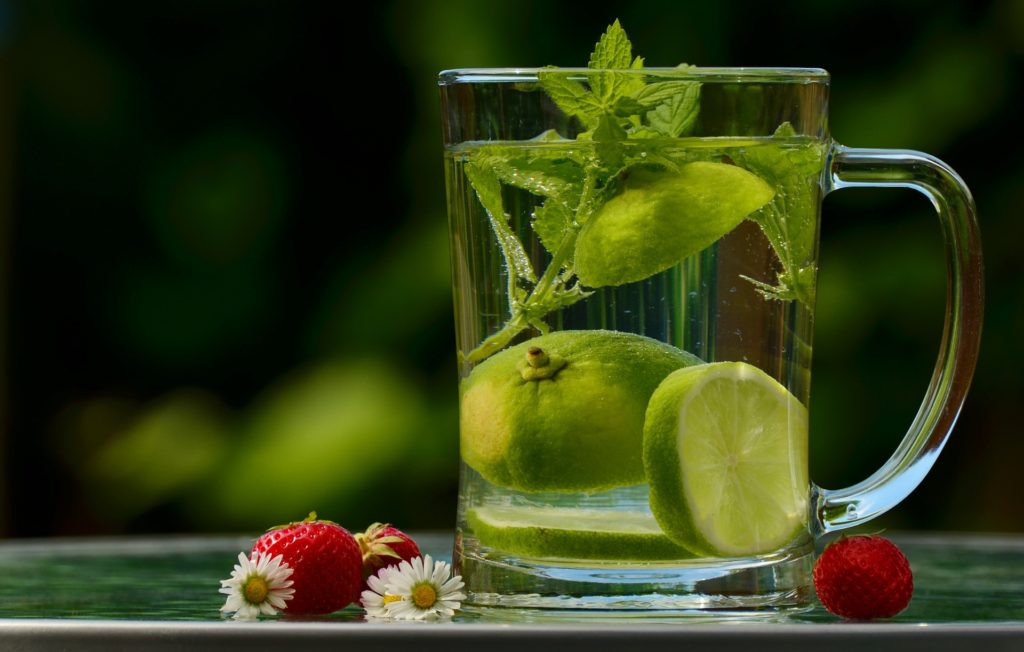How to Properly Hydrate – The Importance of Good Hydration
It’s almost impossible not see at least one person guzzling down water in their plastic container when going out in public. We have been told thousands of times by doctors and natural health leaders that 8 glasses of water a day is mandatory for proper hydration.
In fact, most won’t leave the vicinity of their home without carrying along a water bottle with them in fear of becoming dehydrated.
Yet, 50 years ago drinking 8 glasses of water a day was unheard of. However, we are told these 8 glasses a day are necessary to remove toxins and keep the body functioning at optimal levels.
When you begin to delve deeper into traditional life ways of Native people and understand how these people ate and lived, you begin to question many of the “mandatory” rules for health.
In this post we hope to shed some light on the hydration issue and put to rest many of the myths surrounding hydration.
How to Properly Hydrate
Before we get into how much water we should be drinking each day we need to clarify how the body actually hydrates.
Many are under the impression that if you drink a lot of water you will have perfect hydration levels. This can’t be further from the truth. In fact, this excessive water drinking can actually lead to dehydration since it will naturally deplete the electrolyte level in the body (1).
In fact, the whole 8 glasses a day slogan came from a series of weak studies in the 1940’s claiming that a diet should contain at least 8 glasses of water a day. However, many did not thoroughly read these studies and failed to realize that much, if not most, of the water we require can be obtained from the foods we eat.

Soon many began to promote 8 cups of water a day, which soon turned into 8 tall glasses of water, which then later became a gallon of water.
It’s important to understand that it’s not the water you take in that hydrates you, but the water you hold. More and more research is showing that in order for cells to properly hydrate, sodium must be present (2).
If we drink too much water without replacing our salts (electrolytes), we risk becoming dehydrated. Also frequent urination caused by too much water drinking or diuretics can also disrupt our electrolyte balance.
It seems counter intuitive but drinking more water does not necessarily equate to better hydration.
Water Dissolves Toxins Myth
It’s true that water can help eliminate some toxins that may be overburdening the body. However, this is only true if the toxin is in fact water soluble, or dissolves in water.
It’s important to understand that many of the toxins that we come into contact with each and every day are in fact fat soluble. In order to remove these toxins from the body, it must first be bound to fat and then carried out of the body.
In fact, one study showed that coconut oil helped reduce the amount of toxic cadmium (heavy metal) in the body and thus reducing the risk of cardiovascular disease (3).
We’ve written about the many health benefits of coconut oil before, so we won’t bore you. However, coconut oil is the perfect example of how the body will utilize fat, and not water, to detoxify itself.
How did Our Ancestors Hydrate
Just think, Columbus discovered America (this is another myth for a different day) and all the Native Americans greeted him all holding their fancy water bottles to prevent dehydration.
Do you see how ridiculous this sounds? Yet, going back to the natural world where we all came from can hold clues on how we should be living.

How often do you think our ancestors and Native Americans actually guzzled down water? In fact, many historians write that most Native Americans never drank plain water but infused it with a combination of different herbs, Sassafras being a favorite for Northern Tribes. Also, bone broths were frequently drank as a source of hydration and nourishment.
It makes much more sense that Native Americans would drink when thirsty and drink when water presented itself. Whether this equated to 8 glasses of water a day is a mystery but personal conclusions can be made by stepping back into the natural world.
So How Much Should We Drink?
We personally believe that you should drink when thirsty and use a quality sea salt on food to taste. Don’t put a number on it, but rather follow your instincts and drink when thirsty.
Also, it’s important to understand that those on a heavy grain diet may actually require more water due to the fact that grains act like a sponge in the stomach and will soak up any water present.
Those following a traditional diet with little to no grains may require a bit less water. With that said, adequate animal foods will provide the body with natural sodium which will improve hydration. Also, many plant foods such as celery provide a good ratio of water, sodium and potassium which can aid in hydration.
The Perfect Hydration Recipe
For those who are more active, sweat frequently or just require more water, the following recipe can be good option to increase hydration levels in the body.
Ingredients:
16 oz spring water
1 tsp of maple syrup or Raw Honey
Pinch of Quality Sea Salt
Simply mix all the ingredients together in a glass bottle and you’re good to go! Experts have found that for maximal water absorption into the cells, intestines and channels in the body; both sodium and glucose/sucrose must be present (4).
This teaspoon of maple syrup or raw honey is minuscule for those avoiding sugar and a useful for tool for those looking to quickly hydrate.


Leave a Reply